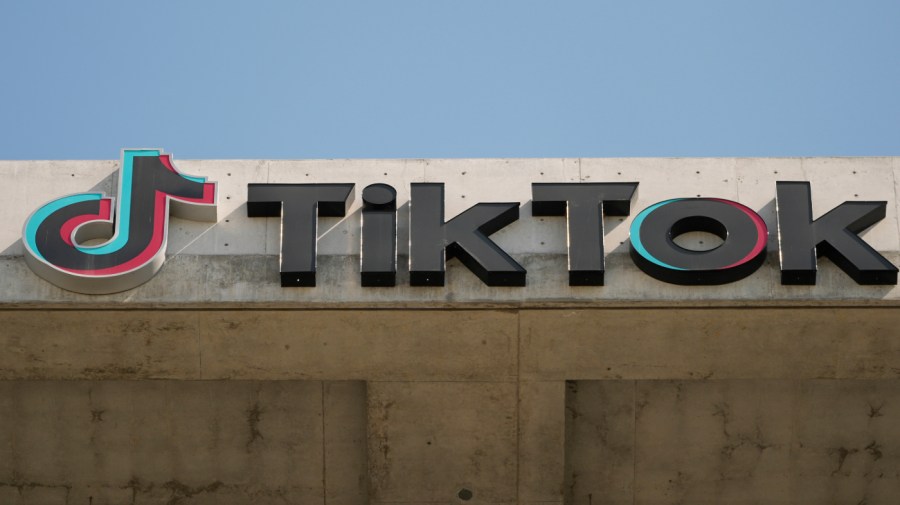Congress and the Biden administration have followed through on threats to force TikTok’s Chinese parent company to sell the popular short-video platform or face a sweeping ban in the United States.
But the fight, far from over, now will move to the U.S. courts, where TikTok and the Chinese parent, ByteDance, will argue that the government is improperly limiting free speech.
Perhaps anticipating the coming First Amendment battle, the Biden White House went out of its way to emphasize that the president would prefer a spinoff of TikTok rather than a ban that would block the platform’s 170 million American users — many of whom are voting-age — from posting and viewing videos on the controversial site.
The New York Times reported White House Press Secretary Karine Jean-Pierre said, “We want to see a divestment. We want to see it being sold, and we do not seek a ban.” She added, “We’re not saying that we do not want Americans to use TikTok. We want to make sure it’s done in a way that we protect our national security and we protect Americans.”
In fact, the White House has urged — actually, forced — some people to avoid the platform, at least while they’re at work. Last year, the Biden administration banned federal employees and contractors from downloading TikTok to government or personal devices used for official activity.
Further underscoring the situation’s complexity, Biden’s reelection campaign has a TikTok account that it has been using to circulate videos boosting the incumbent and criticizing his challenger, Donald Trump, who relies primarily on his platform, Truth Social.
Having failed to sway Congress, ByteDance has vowed to shift to the courts. “The facts and the Constitution are on our side, and we expect to prevail,” TikTok CEO Shou Chew said in a video posted on the app.
In court, the company will argue that a forced sale backed by the threat of a ban amounts to an infringement of First Amendment rights enjoyed by both TikTok users and the platform itself. The U.S. Supreme Court has ruled repeatedly that the government risks unconstitutionally interfering with speech rights when it imposes burdens that stop short of totally silencing individuals or organizations.
In 1965, for example, the Supreme Court ruled that a law designed to deter the spread of foreign communist propaganda, without banning it altogether, still violated the First Amendment. The court struck down a statute requiring the Post Office to refrain from delivering mail containing such propaganda unless the intended recipient first filled out a card stating that they wanted to receive the material. This requirement constituted “a limitation on the unfettered exercise of the addressee’s First Amendment rights,” the court said.
By analogy, cutting off Americans’ access to TikTok because of concerns that it might become a vehicle for Chinese disinformation might be viewed by the U.S. judiciary as far more extreme interference than the Cold War-era snail mail regulation.
Another reason lawmakers have offered for demanding a sale or ban of TikTok is that the platform could provide a means for the Chinese government to spy on users’ personal information. However, skeptics of the new law have countered that such information is widely available for sale from various third-party commercial data brokers. So, ByteDance may be able to knock down the U.S. government’s contention that it is acting to protect its citizens’ privacy.
But the claim — so far unsubstantiated — that TikTok presents a real threat to U.S. national security would be more difficult for ByteDance to overcome. The U.S. Supreme Court typically gives the government wide latitude when it plausibly invokes dangers to the safety of the nation. Even if the Chinese company mounts a respectable First Amendment challenge, it still might fail in the face of the U.S. government’s contention that the Chinese could use TikTok to spread mis- and disinformation intended to manipulate American elections.
The U.S. State Department issued a report last year finding that China “employs a variety of deceptive and coercive methods,” including “propaganda, disinformation and censorship,” to “influence the international information environment.”
TikTok vehemently denies that it is susceptible to such exploitation by Beijing. But as our Center noted in a recent report on digital risks to the 2024 elections, some researchers have maintained that the platform’s famously effective recommendation algorithm may facilitate the spread of misinformation, especially to its large audience of younger users.
Before too long, we will learn how the Supreme Court weighs free speech rights online against the danger of potential Chinese interference in U.S. civic affairs. The outcome is far from certain.
Paul M. Barrett is the deputy director and senior research scholar at the Center for Business and Human Rights at New York University’s Stern School of Business.
